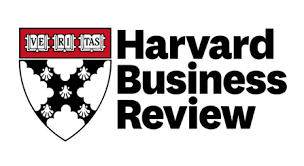
Extractive summaries and key takeaways from the articles curated from TOP TEN BUSINESS MAGAZINES to promote informed business decision-making | Week 301 | June 16-22, 2023.

Investing in Growth Through Uncertainty
By Ranjay Gulati | Harvard Business Review Magazine | July–August 2023 Issue
Listen to the Extractive Summary of the Article
When faced with disruptions and downturns, many leaders and companies instinctively focus on cutting costs to maintain profitability. But some use the period of uncertainty to identify opportunities and then take thoughtful action to seize them. They realize that true resilience involves more than recovering from or resisting the effects of adversity. It is the ability to emerge even stronger. This requires both pressure-testing your firm’s operational and financial health in worst-case scenarios and staying alert for measures you might take, even amid chaos, to find a winning edge.
Adversity accompanied by uncertainty typically triggers fear and defensiveness in everyone. However, more-recent research of the author reveals that organizations can overcome this defensiveness by fostering three key mindsets:
- Sensemaking in a Crisis. Difficult circumstances can feel paralyzing, but we don’t need to wait until we’ve figured everything out to move forward. Indeed, taking that first step into uncertain conditions is how we begin the process of sensemaking—which helps us understand ambiguous or confusing issues and events. Resilient companies and leaders favor action over inaction, especially in times of crisis. They define their ultimate goals and then make thoughtful initial moves, adjusting and pivoting when necessary to ensure that they stay on the right path. Combining a long-term perspective with an action orientation enables leaders to respond to a crisis by adapting, improving on, and adding to investment plans rather than abandoning them.
- An Ethic of Bootstrapping. The most common form of human stupidity, the philosopher Friedrich Nietzsche observed, is forgetting what one is trying to do. Sadly, adversity often leads panicked executives to do just that. In their quest for lower-cost operations, they destroy their companies’ prospects—falling into what some have called an “efficiency trap” or a “death spiral.” A better approach when cost cutting is to consider the effectiveness of operations. This is a subtle but important mindset shift. It’s not enough to squeeze out as much as you can with the least amount of waste. You must still create the products, services, and internal processes that will lead you to your desired goals.
- Balancing Stakeholders’ Interests. The best leaders are like Chinese chefs because they know how to cook sweet and sour—that is, they know how to attend to stakeholders with completely different desires. Achieving such balance is hard in good times, but it can become especially vexing in a crisis. Leaders at resilient companies lean into tensions among stakeholders, challenging themselves to serve conflicting interests as best they can with creative trade-offs—an approach the author termed practical idealism. It means working with employees, suppliers, partners, investors, and local communities to devise solutions that might extract short-term concessions from some groups but limit the pain they feel while also addressing broader, long-term needs.
2 key takeaways from the article
- When faced with disruptions and downturns, many leaders and companies instinctively focus on cutting costs to maintain profitability. But some use the period of uncertainty to identify opportunities and then take thoughtful action to seize them. They realize that true resilience involves more than recovering from or resisting the effects of adversity. It is the ability to emerge even stronger.
- Adversity accompanied by uncertainty typically triggers fear and defensiveness in everyone. However, organizations can overcome this defensiveness by fostering three key mindsets: sensemaking while focusing on actions, a bootstrap ethic i.e., focus on effectiveness rather than senseless cost cutting, and a commitment to stakeholder balance. Leaders who embrace these ways of thinking manage to chart a course for the future even when the outlook is darkest.
(Copyright)
Topic: Leadership, Strategy, Decision-making
